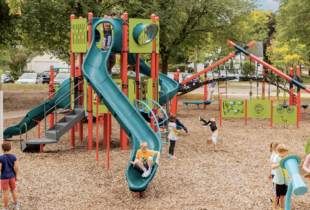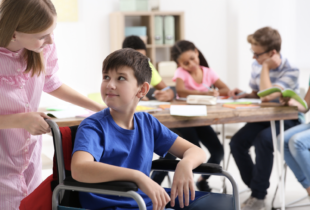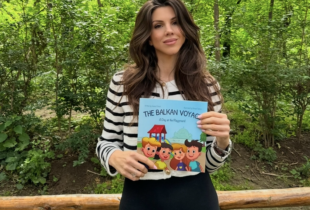Chores aren’t always fun, yet they are a necessary part of life, especially for children’s development. Parents play a crucial role in teaching children the value of cleaning. Participating in household chores at an early age can help build mastery, responsibility, and self-reliance — all of which can translate into other aspects of their lives, such as establishing good relationships and seeing academic success. Our post “Why is it important to help kids at an early age?” highlights how the cost-benefit ratios of early childhood development may return four to five times on average against the amount invested, making positive teaching experiences beneficial as far as adulthood.
Given the importance of cleaning up, parents should take the time to teach their children essential cleaning tasks. Listed below are some ways kids can help around the house:
Doing the laundry
The best part of teaching your children to do the laundry is that you can assign them age-appropriate tasks, even as young as their toddler years. While young children don’t have the physical capacity to do most chores, they can start by learning how to sort clothes from light to dark for washing. Once your children reach school age, they can be taught how to fold and put away their clothes. Upon an older age, they should be ready to load laundry into the washing machine or dryer with your supervision and understand basic laundry symbols.
Decluttering old things
As your children get older, more things may accumulate in your home and get left unused. Although going through a mound of old things seems daunting, decluttering together can be a fun activity. You can bond and reminisce with your child as you go through stuff they used before. In addition, anything still in good condition can be given to a friend or relative or donated, allowing you to teach your child the value of sharing. Parents should lead by example by working in their own space, be it for the kitchen or bedroom, and have their children join in the decluttering process. This can ease children into letting go of things they don’t need without hurting their sentimental feelings.
Sweeping and mopping the floor
Sweeping the floor seems simple, but it often takes practice to sweep effectively rather than flip dirt everywhere. Mopping is even more complicated, as kids must prepare mop water, wring out the mop, rinse it, and deal with tough spots. Parents should always supervise their children step by step; start with cleaning a small area each time until they can become consistent without instruction. When the event arises, you can teach your child how to get rid of tough stains. Regular brooms and mops may be too big for your child, so get kid-sized cleaning tools to help them clean more efficiently.
Washing the dishes
Considering how meals are integral to the family routine, your children can wash the dishes as part of their mealtime contributions. Much like doing the laundry, you can assign age-appropriate tasks to children, like having a 6-year-old scrape and rinse plates while a 9-year-old can wash different dishes or load them onto a dishwasher. Tips on washing dishes from lifestyle blog The Spruce recommend using a sponge with nylon bristles for scrubbing and having dishwashing gloves to keep a good grip on slippery plates and protect hands from harsh soap — helpful for children who have smaller hands.
Teaching your children how to clean their homes can foster lifelong skills that can benefit them into adulthood. Training them to do chores also goes beyond survival skills and builds essential values such as responsibility and respect for things, nurturing them into successful adults.
Feature specially submitted to balkanchildren.com
Submitted by: J Benstock






